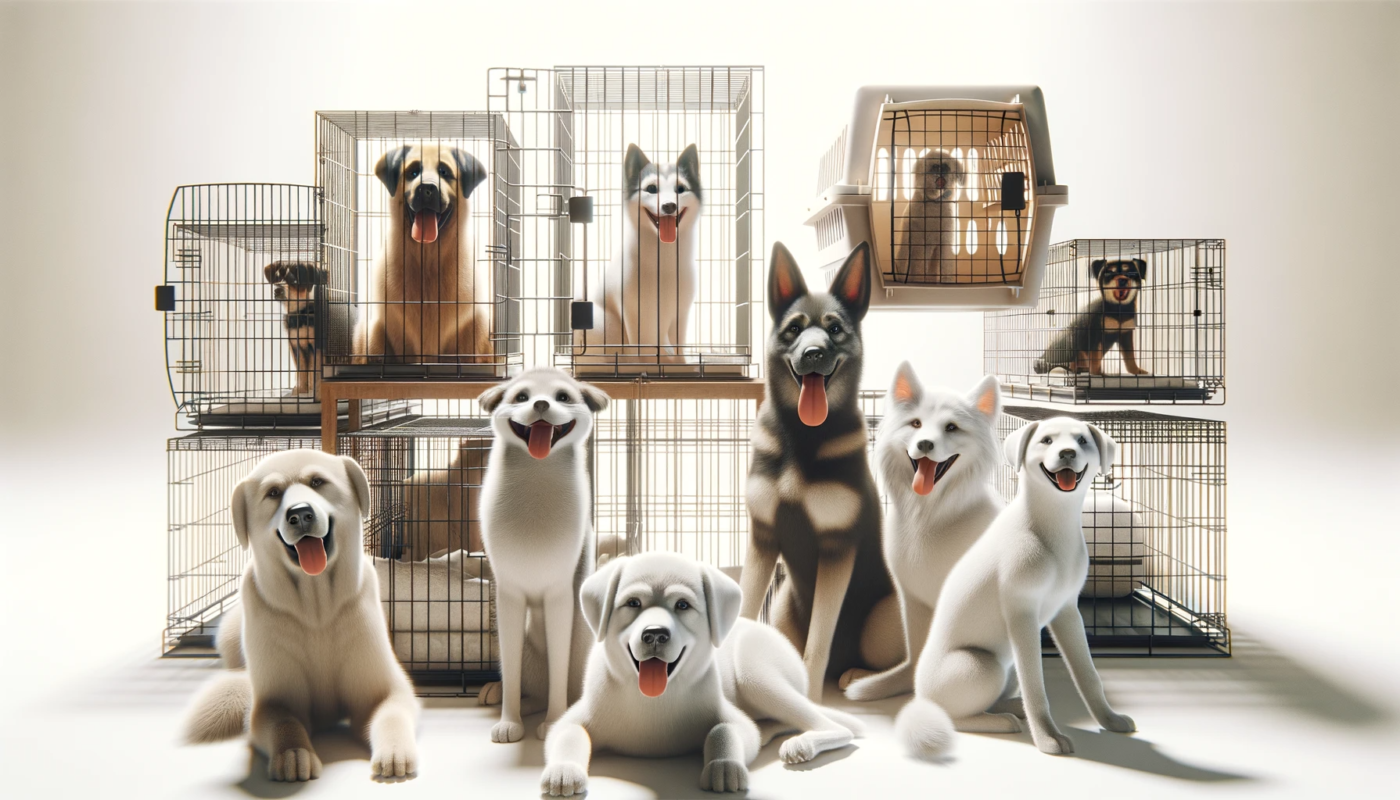
The Ultimate Guide to Commercial Cleaning
Are you tired of walking into a dirty, disorganized office every morning? Look no further! “The Ultimate Guide to Commercial Cleaning” is here to help you transform your workplace into a clean and inviting environment. Whether you’re a business owner or an employee looking to improve your workspace, this comprehensive guide will provide you with the tips and tricks to achieve impeccable cleanliness. From effective cleaning techniques to choosing the right cleaning products, this guide has got you covered. Say goodbye to clutter and hello to a spotless office with “The Ultimate Guide to Commercial Cleaning.”
Find products like these on Amazon!
Understanding Commercial Cleaning
What is Commercial Cleaning?
Commercial cleaning refers to the professional cleaning services provided for commercial and business establishments. Unlike residential cleaning, which is aimed at maintaining the cleanliness and hygiene of individual homes, commercial cleaning focuses on larger-scale cleaning projects for offices, retail stores, hotels, restaurants, healthcare facilities, and other commercial spaces.
Benefits of Commercial Cleaning
Commercial cleaning offers numerous benefits for businesses. First and foremost, it helps create a clean and welcoming environment for employees and customers alike. A clean workplace not only improves productivity but also enhances the overall image and reputation of a business.
Moreover, regular commercial cleaning helps prevent the spread of germs and reduces the risk of illnesses among employees and customers. Cleanliness is especially crucial in high-traffic areas such as restrooms and shared workspaces where bacteria and viruses can easily spread.
Types of Commercial Cleaning Services
Commercial cleaning services can vary depending on the specific needs of a business. Some common types of commercial cleaning services include:
-
Office Cleaning: Regular cleaning and maintenance of office spaces, including dusting, vacuuming, and sanitizing workstations, meeting rooms, and common areas.
-
Retail Cleaning: Cleaning services tailored for retail stores, ensuring cleanliness and organization of shelves, aisles, and restrooms to create an appealing shopping experience for customers.
-
Restaurant Cleaning: Thorough cleaning and sanitization of kitchens, dining areas, and restrooms in compliance with health and safety regulations to maintain a safe and hygienic food service environment.
-
Healthcare Facility Cleaning: Specialized cleaning services for hospitals, clinics, and other healthcare facilities, which require strict adherence to sanitation protocols to prevent the spread of infections.
-
Educational Facility Cleaning: Cleaning services customized for schools, colleges, and universities, focusing on maintaining clean and healthy learning environments for students and staff.
-
Industrial Cleaning: Cleaning services for industrial facilities, which often involve heavy-duty cleaning tasks such as pressure washing, degreasing, and removing hazardous substances.
Choosing a Commercial Cleaning Company
Factors to Consider
When choosing a commercial cleaning company, several factors need to be taken into consideration. These include:
-
Experience and Reputation: Look for a cleaning company with a proven track record and positive reviews from previous clients. Experience indicates the company’s ability to handle different cleaning challenges efficiently.
-
Services Offered: Assess whether the company offers the specific cleaning services your business requires. Consider if they can tailor their services to meet your unique needs.
-
Certifications and Licensing: Ensure that the cleaning company holds the necessary certifications and licenses to operate in your area. Compliance with industry standards and regulations is essential for a reliable commercial cleaning provider.
-
Insurance Coverage: Verify that the cleaning company has adequate insurance coverage to protect against any liability or damages that may occur during the cleaning process. This creates peace of mind for both your business and the cleaning company.
Researching Potential Companies
Before making a decision, it is crucial to conduct thorough research on potential commercial cleaning companies. Start by searching online for local cleaning service providers and explore their websites to gather information about their services, expertise, and client testimonials. Additionally, consider seeking recommendations from other businesses or industry associations.
Evaluating Company Qualifications
Once you have identified several potential cleaning companies, evaluate their qualifications before making a final decision. Request copies of their certifications, licenses, and insurance policies. It is important to ensure that their qualifications align with your business’s specific requirements and industry standards.
Comparing Prices and Services
Obtaining quotes from multiple cleaning companies allows you to compare prices and services. While cost is an important factor, it should not be the sole determining factor. Consider the value provided by each company in terms of the quality of services offered, the reliability of the cleaning team, and their responsiveness to your business’s needs.
Reading Reviews and Testimonials
Reading reviews and testimonials from previous clients can provide valuable insights into the quality and reliability of a commercial cleaning company. Online review platforms and the company’s website are good sources for this information. Pay attention to recurring themes and consider the overall reputation of the company before making a final decision.

This image is property of images.pexels.com.
Find products like these on Amazon!
Commercial Cleaning Equipment and Supplies
Essential Cleaning Equipment
To effectively carry out commercial cleaning tasks, certain essential cleaning equipment is necessary. These include:
-
Vacuum Cleaner: A reliable vacuum cleaner is essential for effective and efficient carpet and floor cleaning. Look for models that are suitable for commercial use and have strong suction power.
-
Mops and Buckets: High-quality mop heads and sturdy buckets are crucial for floor cleaning and mopping tasks. Consider using microfiber mop heads, as they are highly effective in capturing dirt and debris.
-
Brooms and Dustpans: Brooms and dustpans are handy tools for sweeping and disposing of debris. Look for brooms with sturdy bristles that can effectively capture dust and dirt.
-
Cleaning Carts: Cleaning carts provide a convenient way to transport cleaning supplies and equipment from one area to another. They help streamline the cleaning process and improve efficiency.
Specialized Equipment for Different Surfaces
In addition to essential cleaning equipment, specialized equipment may be required to clean different surfaces effectively. These can include:
-
Carpet Extractor: Carpet extractors use hot water and cleaning solutions to deep clean carpets, removing dirt, stains, and odors. This equipment is vital for maintaining clean and odor-free carpets in commercial spaces.
-
Floor Scrubbers: Floor scrubbers are efficient machines that use brushes or pads to scrub and clean hard floors. They save time and effort compared to manual scrubbing and provide a more thorough clean.
-
Pressure Washers: Pressure washers use high-pressure water jets to clean exterior surfaces, such as sidewalks, parking lots, and building facades. They are ideal for removing stubborn stains, dirt, and mold.
-
Window Cleaning Equipment: Window cleaning equipment includes squeegees, extension poles, and cleaning solutions specifically designed for glass surfaces. These tools ensure streak-free and spotless windows.
Cleaning Chemicals and Solutions
Different cleaning tasks require specific cleaning chemicals and solutions. Commercial cleaning companies typically use a range of chemicals to effectively clean and disinfect different surfaces. Common cleaning chemicals include:
-
All-Purpose Cleaners: Versatile cleaners that can be used on a variety of surfaces, including countertops, desks, and floors.
-
Disinfectants: Chemicals that kill bacteria and viruses, ensuring the elimination of harmful pathogens from surfaces, especially in high-risk areas like restrooms and kitchens.
-
Glass Cleaners: Specifically formulated cleaners for streak-free cleaning of windows, glass, and mirrored surfaces.
-
Floor Cleaners: Cleaning solutions designed for different types of flooring, such as hardwood, tile, or carpet. These solutions remove dirt and stains while maintaining the integrity of the flooring material.
Eco-Friendly Cleaning Products
In recent years, there has been a growing emphasis on using eco-friendly cleaning products. These products are formulated to minimize environmental impact and reduce exposure to harmful chemicals. Switching to eco-friendly cleaning products can create a healthier and more sustainable cleaning environment for both employees and customers.
Safety Equipment and Protective Gear
Safety should be a priority in commercial cleaning operations. Cleaning staff should be equipped with appropriate safety equipment and protective gear to ensure their well-being. This includes gloves, goggles, masks, and aprons to protect against exposure to harmful chemicals and to prevent accidents while handling equipment.
Creating a Commercial Cleaning Schedule
Importance of a Cleaning Schedule
Having a well-planned cleaning schedule is essential for maintaining a clean and healthy commercial environment. A cleaning schedule ensures that all necessary cleaning tasks are carried out regularly, preventing dirt buildup and maintaining the overall cleanliness of the premises.
Determining Frequency and Scope of Cleaning
When creating a cleaning schedule, it is important to determine the frequency and scope of cleaning required for each area. High-traffic areas and spaces with specific hygiene requirements may need to be cleaned more frequently than other areas.
Allocating Time and Resources
Once the cleaning frequency and scope are determined, allocate sufficient time and resources for each cleaning task. Consider the size of the space, the complexity of the cleaning task, and the number of cleaning staff available to ensure that cleaning tasks can be completed efficiently.
Scheduling Regular Maintenance
In addition to routine cleaning tasks, it is essential to schedule regular maintenance to address any repairs or maintenance issues. Regular maintenance helps prolong the lifespan of assets and ensures that the premises are always in optimal condition.
Delegating Cleaning Tasks
Assigning specific cleaning tasks to designated staff members helps streamline the cleaning process and ensures accountability. Clearly communicate the expectations and responsibilities to the cleaning staff and provide training as necessary to ensure they are equipped to handle their assigned tasks effectively.

This image is property of images.pexels.com.
Essential Techniques for Commercial Cleaning
Proper Dusting and Vacuuming
Dusting and vacuuming are fundamental cleaning techniques that should be performed regularly. Dusting surfaces, including desks, shelves, and equipment, helps prevent the accumulation of dust, which can trigger allergies and respiratory issues. Vacuuming should be done thoroughly on carpets and hard floors to remove dirt, debris, and allergens.
Disinfecting and Sanitizing Surfaces
Disinfecting and sanitizing surfaces is crucial for maintaining a hygienic commercial environment. High-touch surfaces, such as doorknobs, light switches, and countertops, should be disinfected regularly to reduce the risk of germ transmission. Using appropriate disinfectants and following recommended dwell times ensure effective disinfection.
Carpet and Upholstery Cleaning
Carpet and upholstery cleaning help maintain a clean and fresh environment, improving the aesthetics and longevity of these surfaces. Regular vacuuming removes loose debris, while periodic deep cleaning eliminates stains, odors, and embedded dirt from carpets and upholstery.
Window and Glass Cleaning
Clean windows and glass surfaces contribute to a bright and inviting atmosphere. Streak-free window and glass cleaning can be achieved by using proper cleaning techniques, such as using a microfiber cloth or squeegee, combined with a suitable glass cleaner.
Floor Maintenance and Polishing
Proper floor maintenance and polishing contribute to the overall cleanliness and appearance of commercial spaces. Sweeping, mopping, and polishing floors regularly help remove dirt and scuff marks, resulting in a clean and polished look.
Best Practices for Commercial Cleaning
Establishing Cleaning Standards
Establishing cleaning standards is essential to ensure consistent quality across all cleaning tasks. Clearly define the expectations for cleanliness, including specific cleaning techniques, equipment usage, and desired outcomes.
Implementing Quality Control Measures
Regular inspections and quality control measures help identify areas that may require improvement and ensure that cleaning tasks are being carried out according to established standards. Implementing a feedback loop and addressing any issues promptly helps maintain the highest level of cleanliness.
Training Cleaning Staff
Effective training for cleaning staff is crucial for achieving high-quality cleaning results. Provide comprehensive training on proper cleaning techniques, equipment usage, safety protocols, and customer service skills. Ongoing training and refresher courses can also help keep cleaning staff up to date with industry best practices.
Effective Communication and Feedback
Maintaining open and effective communication with the cleaning staff is essential for addressing any concerns or issues promptly. Regularly communicate cleaning expectations, provide constructive feedback, and encourage feedback from the cleaning staff to identify areas for improvement.
Updating Cleaning Protocols
As cleaning products, techniques, and industry standards evolve, it is important to update cleaning protocols to keep up with the latest practices. Stay informed about new cleaning techniques, tools, and products and evaluate their potential benefits for your specific cleaning needs.

This image is property of images.pexels.com.
Specific Challenges in Commercial Cleaning
Dealing with High-Traffic Areas
High-traffic areas present specific challenges, as they are more prone to dirt accumulation, wear and tear, and the spread of germs. Pay extra attention to these areas, implement more frequent cleanings, and consider protective measures such as mats and protective coatings to minimize dirt and damage.
Managing Cleaning during Business Hours
Cleaning during business hours requires careful planning to minimize disruptions to employees and customers. Schedule cleaning tasks strategically during slower periods, prioritize non-intrusive cleaning activities, and communicate the cleaning schedule to employees and customers to manage expectations.
Cleaning Sensitive Areas
Certain areas, such as laboratories, healthcare facilities, and food preparation areas, require specialized cleaning techniques due to their unique requirements and potential hazards. Ensure that cleaning staff receives proper training and uses appropriate cleaning protocols to maintain the safety and hygiene of these sensitive areas.
Addressing Health and Safety Concerns
Health and safety should be a top priority in commercial cleaning. Implement safety protocols, provide necessary safety equipment, and ensure compliance with relevant regulations to minimize the risk of accidents or exposure to hazardous materials.
Handling Specialized Cleaning Projects
From post-construction cleanups to deep cleaning after major events, specialized cleaning projects may arise in commercial settings. These projects often require unique techniques and equipment. Determine the specific requirements of the project and consider outsourcing to experienced professionals if necessary.
Maintaining a Clean and Healthy Environment
Preventing the Spread of Germs and Illnesses
Implementing proper cleaning and disinfection protocols is a key strategy for preventing the spread of germs and illnesses in a commercial environment. Regular disinfection of high-touch surfaces, promoting hand hygiene practices, and providing hand sanitizing stations can significantly reduce the risk of infections.
Proper Waste Management
Proper waste management is crucial for maintaining cleanliness and minimizing health risks. Set up designated waste disposal areas, provide clearly labeled bins, and ensure regular trash removal to prevent the accumulation of waste and potential sanitation issues.
Controlling Indoor Air Quality
Maintaining good indoor air quality is essential for a healthy commercial environment. Regularly changing HVAC filters, proper ventilation, and maintaining clean carpets and upholstery can help reduce the presence of allergens, pollutants, and odors that may affect air quality.
Maintaining a Pleasant Ambiance
A clean and well-maintained commercial environment contributes to a pleasant ambiance for customers and employees. Pay attention to details such as refreshing air fresheners, maintaining clean and orderly common areas, and creating an inviting atmosphere that reflects positively on your business.
Regular Inspections and Cleaning Audits
Regular inspections and cleaning audits are crucial for maintaining the highest level of cleanliness. Conduct periodic inspections to identify any areas that may require improvement, ensure compliance with cleaning standards, and address any potential issues promptly.
Outsourcing vs. In-House Cleaning
Advantages of Outsourcing Commercial Cleaning
Outsourcing commercial cleaning offers several advantages. It allows businesses to focus on their core operations without the need to devote resources to cleaning activities. Professional cleaning companies bring expertise, specialized equipment, and a trained workforce. Additionally, outsourcing cleaning services provides flexibility and scalability to meet evolving business needs.
Benefits of In-House Cleaning
While outsourcing has its advantages, some businesses may choose to keep cleaning operations in-house. In-house cleaning provides more control and oversight of the cleaning process. It allows for greater customization and flexibility in scheduling and enables businesses to directly manage the cleaning staff.
Factors to Consider When Choosing
When deciding between outsourcing and in-house cleaning, consider factors such as budget, desired level of control, staff availability and training, and the specific cleaning needs and requirements of your business. Assessing these factors will help determine which approach is most suitable for your unique circumstances.
The Future of Commercial Cleaning
Emerging Cleaning Technologies
The future of commercial cleaning is heavily influenced by emerging cleaning technologies. Robotics, automation, and smart cleaning solutions are increasingly being integrated into cleaning processes, enhancing efficiency, precision, and cost-effectiveness. Advanced technologies like UV disinfection devices and electrostatic sprayers are also gaining traction.
Innovations in Cleaning Methods
Innovations in cleaning methods are focusing on improving cleaning outcomes while minimizing environmental impact. New techniques such as steam cleaning, dry ice blasting, and green cleaning methods are gaining popularity for their ability to deliver effective results without using harsh chemicals or excessive water consumption.
Sustainable and Green Cleaning Practices
Compliance with sustainability practices is increasingly important in the commercial cleaning industry. Green cleaning practices that prioritize the use of eco-friendly products, renewable energy sources, and responsible waste management reduce environmental impact while promoting a healthier and safer cleaning environment.
Automation and Robotics in Cleaning
Automation and robotics are revolutionizing the cleaning industry. Robotic vacuum cleaners, floor scrubbers, and window cleaning robots are becoming more sophisticated and efficient, reducing the need for human intervention in repetitive tasks and increasing overall cleaning productivity.
Industry Trends and Outlook
The commercial cleaning industry is expected to continue growing due to increased awareness about the importance of cleanliness and hygiene. As businesses prioritize maintaining clean and sanitary environments, the demand for commercial cleaning services is projected to rise. With the integration of technology and innovative cleaning methods, the industry is poised for continued evolution and advancement.
In conclusion, understanding commercial cleaning is essential for businesses that want to create a clean, safe, and welcoming environment for employees and customers. Choosing a commercial cleaning company requires careful consideration of factors such as experience, services, and reputation. Equipping cleaning staff with essential equipment, specialized tools, and appropriate cleaning supplies ensures effective cleaning outcomes. Establishing a well-planned cleaning schedule, implementing proper cleaning techniques, and adhering to best practices help maintain cleanliness and hygiene in commercial spaces. Additionally, addressing specific challenges, outsourcing vs. in-house cleaning decisions, and keeping up with emerging trends contribute to a successful commercial cleaning operation. By prioritizing cleanliness and adopting sustainable practices, businesses can create a clean and healthy environment that reflects positively on their reputation and success.
Find products like these on Amazon!
- Understanding Commercial Cleaning
- Choosing a Commercial Cleaning Company
- Commercial Cleaning Equipment and Supplies
- Creating a Commercial Cleaning Schedule
- Essential Techniques for Commercial Cleaning
- Best Practices for Commercial Cleaning
- Specific Challenges in Commercial Cleaning
- Maintaining a Clean and Healthy Environment
- Outsourcing vs. In-House Cleaning
- The Future of Commercial Cleaning




-
-
14 hours
Tagged Commercial Cleaning, Janitorial, Maintenance